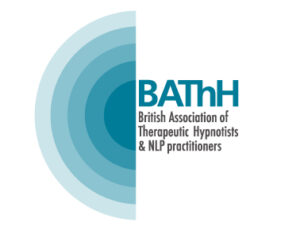CBT
Cognitive Behavioral Therapy (CBT) is a type of psychotherapy that has been widely used to treat a variety of mental health conditions, including depression, anxiety, phobias, obsessive-compulsive disorder (OCD), and post-traumatic stress disorder (PTSD). CBT is based on the idea that our thoughts, feelings, and behaviors are interconnected, and that negative patterns in our thinking can lead to negative emotions and actions. The goal of CBT is to help individuals recognize and change these negative patterns, leading to improved mental health and well-being.
One of the key components of CBT is identifying and challenging negative thoughts, known as "cognitive distortions". These are common, automatic thought patterns that can be unhelpful, unrealistic, and exaggerated. Examples of cognitive distortions include black-and-white thinking (also known as "all-or-nothing thinking"), overgeneralization, and fortune-telling (predicting negative outcomes without evidence). By learning to recognize these thoughts, individuals can then challenge and replace them with more balanced and rational ones.
CBT also emphasizes the role of behavior in shaping our thoughts and emotions. This means that changing our actions can lead to positive changes in our thinking and feelings. For example, someone struggling with social anxiety might be encouraged to engage in social activities, despite their fear, in order to challenge their negative beliefs about their abilities in social situations. Over time, this can lead to a reduction in anxiety and an increase in confidence.
Another important aspect of CBT is teaching individuals coping skills and problem-solving techniques. This can help them better manage difficult emotions and situations, and reduce the likelihood of falling into negative thought patterns. For example, someone with depression might be taught relaxation techniques to help manage feelings of sadness, or someone with OCD might be taught exposure therapy to help reduce their anxiety around certain objects or situations.
CBT has been shown to be highly effective in treating a variety of mental health conditions, with numerous studies supporting its effectiveness. It is often used in conjunction with medication, and in some cases, can be as effective as medication in treating conditions such as depression and anxiety. CBT is also a relatively short-term therapy, with many individuals experiencing significant improvements in their symptoms after just a few sessions.
One of the benefits of CBT is that it empowers individuals to take control of their own mental health. Rather than simply addressing symptoms, CBT helps individuals understand the underlying thought patterns and behaviors that contribute to their symptoms. By learning new skills and strategies, they can continue to use these tools even after therapy has ended.
CBT can also be adapted to fit the individual needs of each person, making it a versatile and flexible treatment option. For example, some individuals may benefit from a more structured, manualized approach, while others may prefer a more flexible, collaborative approach. Additionally, CBT can be delivered in a variety of settings, including in-person therapy, online therapy, and self-help resources.
Despite its many benefits, CBT is not right for everyone. Some individuals may prefer other forms of therapy, such as psychodynamic therapy or mindfulness-based approaches. Additionally, while CBT has been shown to be effective in treating a variety of mental health conditions, there may be some individuals for whom it is not the best fit. It is important to work with a mental health professional to determine the best treatment plan for each individual.
In conclusion, CBT is a highly effective form of psychotherapy that has been widely used to treat a variety of mental health conditions. By helping individuals recognize and change negative thought patterns, and by teaching coping skills and problem-solving techniques, CBT can lead to significant improvements in mental health.
CBT is a complementary therapy.
- Hits: 3436





 25% discount for Key Workers (Police, Fire, NHS)
25% discount for Key Workers (Police, Fire, NHS)